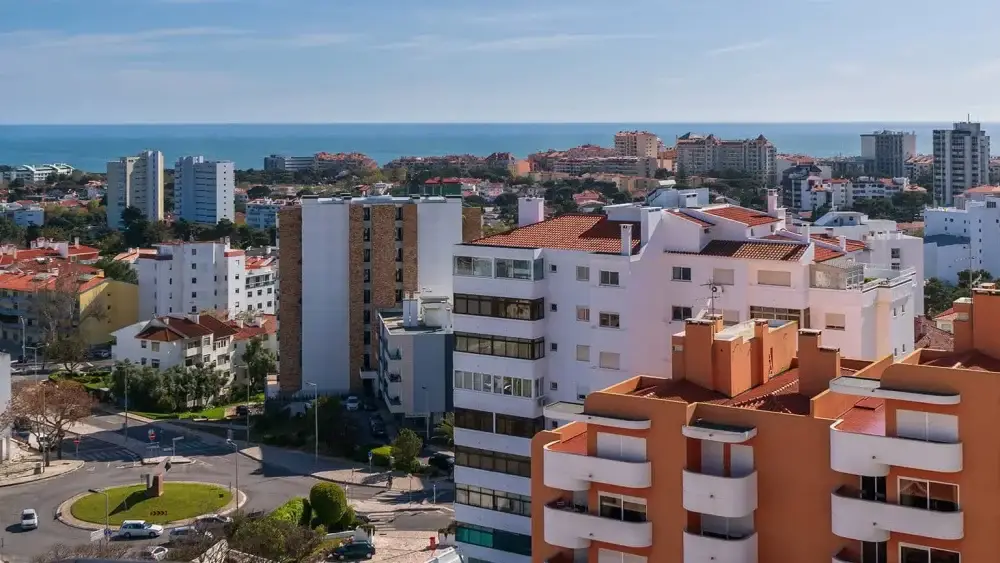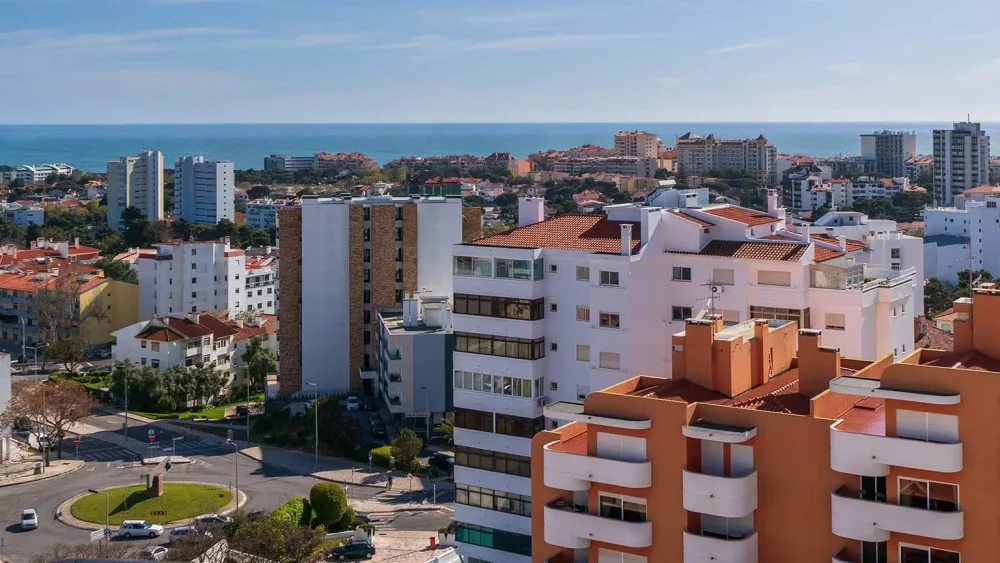Real estate outside of one’s home country is no longer exotic and increasingly becomes a rational tool for future planning. The growth of tourism, international mobility, digital economy, and access to remote markets contribute to a surge in interest in foreign assets. Owning an apartment, house, or commercial property in another country not only opens doors to new legal and financial opportunities but also protects capital from local risks.
Each year, the number of transactions involving foreign real estate is increasing: according to Tranio and Knight Frank, in 2024, the share of Russian investors in the real estate markets of Portugal and Turkey increased by 34%, in the UAE by 22%, and in Spain by 18%. These figures indicate globalization of investments and a growing awareness in asset selection. Why buy real estate abroad? The answer lies in the cold logic of benefit, diversification, and calculation.

Why Buy Real Estate Abroad: Capital Security and Protection Against Inflation
Real estate in a stable jurisdiction acts as a counterbalance to financial shocks. The Eurozone, the Emirates, the UK, Canada, and Portugal provide predictable inflation policies, transparent tax systems, and protection of property rights. Purchasing apartments in Lisbon, Vancouver, or Dubai allows not only to preserve funds but also to fix them in a stable currency.
Real estate market analysis in Portugal shows that from 2015 to 2023, the price per square meter increased from 1,150 to 2,930 euros, especially in the areas of Lisbon, Algarve, and Cascais. The annual inflation remained at 5.2% (2023), while the property value increased by over 9%. These indicators answer the question of why to buy real estate abroad — to avoid depreciation and grow capital.
Residential Base for Personal Use
A home by the sea or an apartment in a European capital creates a stable foundation for living, leisure, and business activities. Seasonal residence, migration plans, rental opportunities, and personal use all contribute to a versatile asset. In Portugal, a country with 300 sunny days a year, buying an apartment in the south in the Albufeira area for 240,000 euros provides not only accommodation but also access to a Golden Visa or D7 program.
In Spain, buyers acquire apartments in Barcelona with an area of 70–80 m² at an average price of 280,000–350,000 euros, including finishing, parking, and a pool in the complex. Real estate in Istanbul, especially in the Kadikoy, Sisli, and Besiktas areas, is popular among investors due to prices of 2,100–2,700 $/m² and high liquidity.
Right to Residency, Residence Permit, and Citizenship
Why buy real estate abroad? One of the key answers is relocation, residency, passport. Purchasing a property grants access to migration programs: in Portugal, the D8 program is available for remote specialists and entrepreneurs, in Turkey and the UAE — residency for investments, and in Malta — citizenship through investment.
In 2024, over 1,750 foreigners obtained residency in Portugal through D7, investing from 100,000 to 280,000 euros in real estate. Buying property in Cyprus worth 300,000 euros grants permanent residency for the whole family. In the Emirates, the long-term residency program (Golden Visa for 10 years) starts from 545,000 US dollars when purchasing property in Dubai.
Passive Income Passport: Why Buy Real Estate Abroad
Foreign real estate brings stable rental income — especially in regions with developed tourism, high demand, and limited supply. In Barcelona, Malaga, Lisbon, or in tourist areas of Dubai, the average long-term rental yield ranges from 4.5 to 6% annually. Short-term rentals on Airbnb and Booking can increase this figure to 8–9%, with proper property management.
In Portugal, properties are rented for 900–1,400 euros/month for a two-bedroom apartment in Lisbon for a period of 6 months. In Dubai, when buying an apartment in Jumeirah Village Circle (JVC) for 175,000 dollars, the monthly amount ranges from 1,200 to 1,450 dollars, providing a net yield of 6.1–6.5% with minimal maintenance costs.
Diversification and Currency Shield
Acquiring foreign real estate creates a currency balance in an investment portfolio. The exchange rate of the euro, dollar, dirham, and pound stabilizes risks associated with the devaluation of the national currency. Properties in Europe and the UAE act as insurance against local economic turbulence.
Example: an investor from Russia purchased two properties — an apartment in Lisbon (260,000 euros) and a studio in Dubai (180,000 dollars). The income in euros covers the costs of a child’s education in the EU, while the profit in dollars serves as dividends to a personal account. Thus, the purpose of buying real estate abroad is to create a global currency shield and maintain personal financial horizons.
Transaction Transparency and Tax Planning
In EU countries, Turkey, and the UAE, property purchases are accompanied by certified lawyers, notaries, and state registries. Property registration takes from 7 to 25 working days. Most countries have signed agreements to avoid double taxation with Russia, Kazakhstan, Ukraine, Belarus, allowing for a transparent and legal income management model.
Example of one-time expenses when buying an apartment in Algarve (Portugal): property purchase tax (IMT) — 3,500 €, stamp duty — 1,300 €, lawyer fees — 1,500 €, registration — 250 €. Everything is accurately accounted for and processed within a month. Rental income is taxed at a fixed rate of 28%, but can be reduced with proper declaration of maintenance and repair expenses.
Why Buy Real Estate Abroad: Live, Rent Out, Resell
Real estate in another country can easily be adapted for various purposes. In changing circumstances, the property can be sold at a profit, rented out, gifted, or used as a means of payment for education, medical treatment, or relocation. Real estate in Portugal has increased in price by 83% since 2014. According to DLD data, properties in Dubai have appreciated by 31% in the last two years, especially in the Business Bay and Marina areas.
One investor purchased an apartment in Porto in 2020 for 145,000 €. In 2024, the property was valued at 197,000 €, and the rent was bringing in 1,100 €/month. After 4 years — +52,800 € to the value plus 52,800 € of net rental income, without considering the euro exchange rate growth.

When is it particularly advantageous to invest:
- When having capital in an unstable currency that needs protection.
- When preparing for emigration, changing tax residency, or starting a business.
- When creating an investment portfolio with a share of currency assets.
- When desiring to earn income in a stable currency without involvement in operational management.
- When needing to provide a child with education in the EU and housing abroad.
- When transitioning to partial or full remote work with a jurisdiction with low taxes.
- When aiming to safeguard assets from sanction risks and local restrictions.
- When diversifying risk by acquiring multiple properties in different countries.
Conclusion
Why buy real estate abroad — for control, flexibility, and freedom. Owning an asset in another country provides not just income but mobility, protection, and confidence in the future. This tool operates around the clock, regardless of the ruble exchange rate, news, and borders. It forms an alternative infrastructure for life, leisure, and capital, serving as the foundation of personal financial strategy.
 en
en  ru
ru  de
de  ar
ar  es
es  nl
nl  hi
hi  fr
fr  it
it  pt
pt  el
el 












